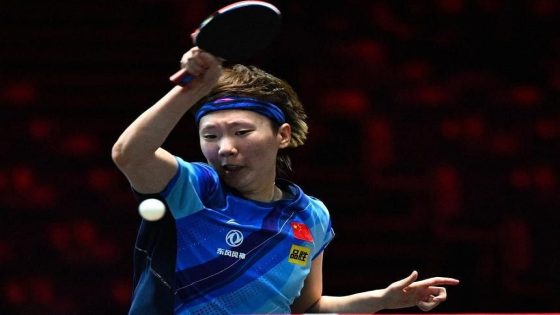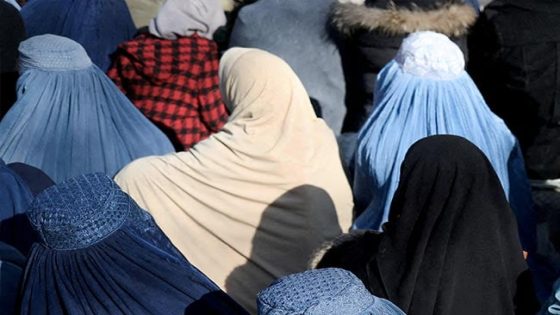BEIJING: When Chinese paddler Wang Manyu failed to make the Paris Olympics women’s singles team in May 2024, her fans felt the decision was unfair.
Many backed a 10,000-word petition to the General Administration of Sport of China – the country’s sport governing body – outlining five ways they feel the selection criteria should be improved.
For China’s fiercely competitive table tennis team, selection is based on a points system that includes performances at major competitions and track record against foreign players.
But other fans took more extreme steps.
They incited others to send protest spam e-mail and make phone calls to the sports authority, and spread rumours that teammate Chen Meng, who had edged out Wang for the second and final singles spot, had benefited from the head coach’s favouritism.
The passion of Chinese sports fans was on display in Singapore earlier last week, when they showed up in large numbers at Lions goalkeeper Hassan Sunny’s nasi padang stall in Tampines, to thank him for his performance in a June 11 football match against Thailand.
ALSO READ: Singapore football goalkeeper urges Chinese fans to stop sending him money
The Singapore team’s 3-1 loss meant that China’s hopes of qualifying for the 2026 World Cup were kept alive. Thailand needed to win by a three-goal margin to advance to the final round of Asia’s qualifiers. Instead, that spot went to China.
Ahead of the Paris Olympics in July 2024, China is on a campaign to improve the less desirable aspects of its sports fan culture, to raise the image of Chinese fans abroad and protect the well-being of its athletes.
The sports administration on May 15 said that “deformed fan culture” should be resisted, noting that this phenomenon has repeatedly caused controversy in recent years, with negative effects on sports stars.
Behaviour being targeted includes profit-driven activities such as the selling of athletes’ hotel and flight information, and name-calling and online abuse of rival fans and referees.
While there is no official data on Chinese travellers heading to the upcoming Olympic games, Chinese media have reported a surge in visa applications to France. The country’s largest online travel agency Ctrip reported in May that there was a 240 per cent year-on-year increase in flight bookings to Paris.
Tensions between athletes and fans have been brewing in recent months.
For instance, a video of national paddler Wang Chuqin in October 2023 snapping at a fan – whom he felt was trailing and filming him too closely at an airport – was widely viewed online, triggering a debate on such rowdy behaviour.
Such unwelcome actions have not been limited to table tennis, China’s national sport. Chinese divers, skaters, basketball and badminton players have also faced the wrath of fans online over sport results.
At China’s national diving championships in November 2023, upset fans believed that judges had under-scored Quan Hongchan, who came in second to teammate Chen Yuxi, and Chen’s family was subject to online abuse.
Adam Zhang, founder of Chinese sports consultancy firm Key-Solution, said that there is a need to differentiate between normal fan behaviour and those that need to be addressed.
“Fans in any field are a normal part of a consumer society, and sharing their views on certain results, for example, should be acceptable,” Zhang told The Straits Times.
But if their behaviour infringes on athletes’ privacy, affects their training, or serves private commercial interests, then it should be dealt with seriously, he said.
Zhang gave the example of daipai, or paparazzi, where independent photographers might create a public nuisance in order to take photos of sports stars to sell to fan groups – a phenomenon which he said has worsened in recent years.
Associate Professor Xi Zhiwu, from the School of Journalism and Communication at Nanchang University in Jiangxi province, believes that the ability of China’s sports authority to improve the image of Chinese fans is limited.
“It also cannot really change how much fans worship their idols. It is only trying to guide fans to follow competitive sports and its stars in a reasonable, rational and healthy way,” said Prof Xi, who has studied the growth of fan culture in China.
But “fan culture” should not be seen as a derogatory term, he said, adding that he does not see the zeal that Chinese fans have for their sports stars as different from those in other countries.
Dr Yin Yiyi of Beijing Normal University said that highly commercialised sports in other countries, from football to e-sports, have led to mature fan management systems, such as official fan clubs.
The long tradition of Western sports fans and the high degree of commercialisation means it is easier to manage and cultivate fans, said Dr Yin, who researches fan and popular culture.
“Although such Western sports fan culture also has problems such as name-calling, the rules to manage them are relatively clear,” she said.
Comparatively, in China, there is almost no tradition of competitive sports fans, and the early football and basketball fan bases were not large, she said. China’s professional national football league kicked off 30 years ago, in 1994, and the Chinese Basketball Association league was founded a year later.
Fan and support culture was almost entirely introduced by idol culture in the entertainment field. “Concepts such as ensuring their idols are trending on social media and pseudo-intimacy between fans and idols are brought to competitive athletes, making it more difficult to manage,” added Dr Yin.
Zhang, a long-time industry observer, added that as public figures, athletes also have to bear a share of the responsibility, in how they conduct themselves and guide fans on the right behaviour.
“For instance, they can influence fans on how to best express their views on competition results, promote the principle of sportsmanship and how best to accept wins and defeats.” – The Straits Times/ANN
Source Agencies




